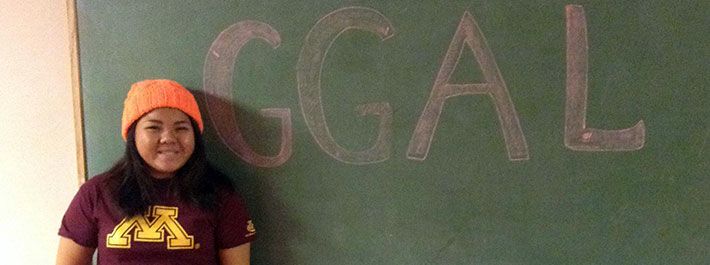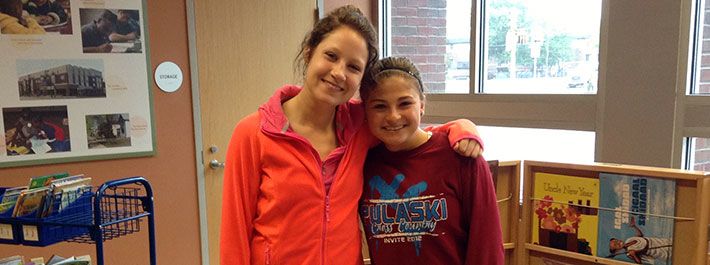 Every year the College of Education and Human Development (CEHD) welcomes over 400 freshmen to college life. All first-year students participate in the First Year Experience (FYE) Program offered through the Department of Postsecondary Teaching and Learning within CEHD. The FYE integrates academic courses, career development, academic advising, and special events that support the building of strong peer networks and development of skills for successfully navigating the University.
Every year the College of Education and Human Development (CEHD) welcomes over 400 freshmen to college life. All first-year students participate in the First Year Experience (FYE) Program offered through the Department of Postsecondary Teaching and Learning within CEHD. The FYE integrates academic courses, career development, academic advising, and special events that support the building of strong peer networks and development of skills for successfully navigating the University.
The fall component of the program is the First Year Inquiry (FYI) course: a writing-intensive multidisciplinary team-taught offering, PsTL 1525: Multidisciplinary Ways of Knowing. Each year the course uses a new common book to engage the question, How can one person make a difference? First-year students select among five different thematically focused sections of the course. One of the choices includes a service-learning section that takes up the idea of making a difference in lives of Twin Cities youth. The service-learning section places emphasis on integrating volunteer experience with critical reflection and academic perspectives on social issues in order to deepen student learning and experience in and outside the classroom.
Each FYI student selected an organization to volunteer for 20 hours over the course of the semester. Most sites where volunteers worked serve low-income, minority, and immigrant kids. Interacting with diverse people was central to students’ volunteer experience. On a weekly basis, students spent time at these locations tutoring, providing homework help, working on literacy and reading skills, and coordinating activities.
At the end of the semester, students reflected on the challenges and rewards of the service-learning experience. Ana Lozano volunteered at Girls Getting Ahead Leadership (GGAL), a nonprofit organization that “provides an opportunity for 9th -12th grade immigrant and refugee girls to prepare for college, improve academic skills, and build leadership skills”.
She explains that “this class opened my eyes to the diversity of people that are in the Twin Cities; I was exposed to people who I normally would have never come in contact with. . . . My views of how immigrant and refugee individuals are seen or portrayed has changed and my interest to be more engaged in the community in which I live in has dramatically increased. By having the ability to reflect through observation notes about all of the things that were happening at my service site has helped me deepen my understanding; by observing instead of judging, giving the individual the opportunity to present themselves. With me I am taking many lifelong skills such as a deeper understanding of cultures, being able to communicate effectively with a diverse group of people, and an increase in community engagement which I plan to continue.”
Lozano goes on to say she has learned more about herself and that her experiences at GGAL have been a chance for her to develop greater awareness of particular challenges others face that are easy to ignore in our daily lives.
Cheniqua Johnson came into the FYI class not realizing there existed a section that provided an opportunity to volunteer. She jumped at the chance to take the service-learning section because she had been volunteering all throughout high school. She was worried that, as a freshman in college with a heavy course load and hectic schedule, she would not be able to continue volunteering. The 1525 course afforded her that opportunity. She chose to work with a student at Cristo Rey High School, a high school in South Minneapolis that “provides a quality, Catholic, college preparatory education to young people who live in urban communities with limited educational options.”
In her final week of volunteering Johnson wrote “[My tutee] and I are both the ‘givers’ and ‘receivers’ of this experience. I’m just thankful that I was able to have this experience and make a difference not only in her life but mine too.”
Ultimately, what did most students say they gained from this integration of coursework with community engagement? By the end of the course many students put “patience” at the top of their list, as well as new awareness and better understanding of other cultures. Students reported that making a regular commitment to a service site and to the young people there resulted in a growing sense of self-confidence and responsibility.
“I’ve discovered something about my interests…and am glad that I chose to take this class,” Johnson reflected.
Read more about the First Year Experience Program




